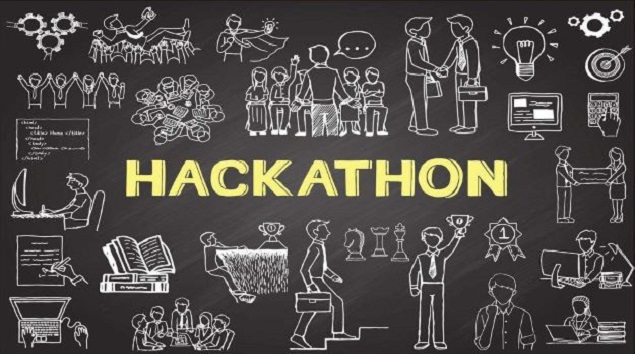General News
Afe Babalola University Partners with New Horizons to Integrate 4IR Skills into Academic Curriculum

The institution has been lauded for its rapid ascent in academic rankings and its dedication to producing socially relevant graduates since its establishments in 2009 by legal luminary Aare Afe Babalola. It has consistently demonstrated excellence in education and research, and has been recognized as Nigeria’s best university for three consecutive years.

Deputy Director, ICT, Afe Babalola University (ABUAD), Ado Ekiti, Muyiwa Oladimeji (left); Vice Chancellor,
Prof. Smaranda Olarinde; Managing Director, New Horizons Nigeria, Tim Akano and the University Bursar,
Pastor Dupe Babatola, during the signing of Memorandum of Understanding between New Horizons and the varsity for the integration of 4IR skill sets into ABUAD’s academic curriculum in Ado-Ekiti, Ekiti State.
Afe Babalola University has entered into a strategic partnership with New Horizons Nigeria to integrate Fourth Industrial Revolution (4IR) skill sets into its academic curriculum. This collaboration aims to empower ABUAD students with globally relevant competencies in Artificial Intelligence (AI), Internet of Things (IoT), Blockchain, 3D Technology, and the Metaverse, Web 3.0, Full Stack, Cyber Security among others. By embedding these cutting-edge technologies into its programs, ABUAD reinforces its commitment to producing graduates who are not only job-ready but also poised to be innovators and wealth creators in the global tech ecosystem.
The Memorandum of Understanding (MoU) was signed by Prof. Smaranda Olarinde, Vice Chancellor of ABUAD, and Mr. Tim Akano, CEO of New Horizons Nigeria. The University Bursar Pastor Dupe Babatola, and Mr. Muyiwa Oladimeji, the Deputy Director of ICT were also present at this meeting.
According to Prof. Olarinde, she stated that the partnership aligns with ABUAD’s vision of fostering innovation and excellence and by integrating 4IR skills into the academic curriculum, students are being prepared to meet the demands of the modern workforce and to drive technological advancement.
Also, Mr. Akano asserted that “New Horizons is proud to collaborate with ABUAD, an institution that shares its commitment to technological empowerment. Together, we will provide students with the tools and certifications necessary to excel in today’s digital world. It could be recalled that in the first three global industrial revolutions, Africa was not present at the parties of Agric revolution of the 17th century, Industrial revolution of the 18th century, and Information Communication revolution of the 20th century, Africa got late to the party. This explains the large-scale hunger, poverty, and diseases that Africa is battling with today. We are in a new era, the age of Artificial General Intelligence (AGI). AGI will determine the trajectory of every profession, going forward. Regardless of whatever course or profession one chooses, there is a component of AGI in it that will decide who is a modern lawyer or obsolete lawyer, who is a modern Doctor or Obsolete Doctor, who is a modern Engineer or obsolete engineer, and who is a modern art student or obsolete art student. Any university today that produce graduates without relevant 4IR skills and certifications attached during their undergrad years is producing obsolete graduates. The four major global challenges confronting humanity are not permanent problems but rather TECHNICAL/Technological problems. A case in point was smallpox, which had killed over 400 million people worldwide. However, when Edward Jenner invented a vaccine, using technology, smallpox got killed itself. Therefore, all the key problems in the world today: hunger, poverty, disease, Climate Crisis, Youth Unemployment are all technological problems that need technological solutions. This is why ABUAD’s partnership with New Horizons is necessary, critical and urgent with a view to ensuring that going forward, the ABUAD graduates have what it takes to compete with the Chinese, Americans and Japanese when it comes to 4.0IR innovations”.
This strategic partnership with New Horizons Nigeria signifies a pivotal step in ABUAD’s mission to remain at the forefront of educational innovation, and to ensure that its students are well-equipped to navigate and lead in the evolving technological landscape.
New Horizons Nigeria is Africa’s largest ICT training organization with over 200 training centres in various universities, high schools, and retail locations across Nigeria, empowering over 100,000 students yearly. New Horizons Nigeria is a franchise of New Horizons International, the world’s largest ICT training institute with Head Office in California and offices in 90 countries worldwide. The institution pioneered the integration of International ICT certification into the Nigeria academic curricular twenty years ago and some of the students that passed through New Horizons training in their respective universities are managing global corporations today in Silicon valley and working with global IT giants like Microsoft, MasterCard, Oracle, Google and Amazon among others.
General News
Tech-driven Solutions Receive Commendation @ Maiden Insurance Week Hackathon

Mrs Yetunde Ilori, President of the Chartered Insurance Institute of Nigeria (CIIN), has commended the innovative and technology-driven solutions presented during the institute’s maiden Insurance Week Hackathon competition.

Ilori gave the commendation after the completion of the competition on Thursday in Lagos, held at the College of Insurance and Financial Management in Asese, Ogun, as part of the Insurance Week organised by the CIIN.
She described the solutions as crucial to the industry’s transformation and relevance in the digital age. “This shows that the future is bright for the Nigerian insurance industry.
We are transforming as an industry, and digital innovation is at the heart of that transformation,” Ilori said. She noted that 19 teams initially applied for the competition, but only six were shortlisted.
The competition, which targeted young Nigerians between the ages of 18 and 29, engaged six finalist teams over a fourweek intensive innovation process, culminating in a demo day on Wednesday in Lagos.
The hackathon focused on real-world challenges in the sector, such as inclusive insurance, fraud detection, risk management, and improving customer experience.
It was designed to cultivate the next generation of insurance innovators, deepen insurance awareness, and promote financial literacy among Nigerians.
The teams that participated in the final stage of the competition were: Ifokanbale, Insurbridge, Insurvate, Team Aegis, Team Phoenix, and The Assured Team. Team Aegis developed “Hustle Guard,” a microinsurance solution for tricycle drivers covering health, life, and income, in an effort to demystify micro insurance in Nigeria.
The Assured Team presented “Kolo Plus by Card,” an unstructured savings plan with payment and interest features tailored to low-income earners. Team Insurbridge created “Smarter Claims,” a solution aimed at improving the insurance claims process.
Team Phoenix introduced “HerShield,” a solution focused on empowering women and building trust in the insurance sector. The Assured Team also developed additional ideas to drive insurance penetration in underserved and informal communities.
After an engaging pitch session before a panel of judges, Team Insurvate emerged as the overall winner with its solution, “Claim Central”, an end-to-end digital platform designed to streamline the insurance claims process from policyholders to insurers.
Team Aegis secured second place, while Team Phoenix came in third. The panel of judges included financial sector experts such as Norah Igwe, Tunji Andrews, Diana Mulili, Sakeenat Bakare, Ibraheem Babalola, and Prince Adeshina Adeyemi-Doro.
Also speaking, Mr Eddie Efekoha, Chairman of the Insurance Week, said the hackathon demonstrated a conscious effort to explore how technology can help distribute insurance products to all parts of the country.
“We believe this initiative will spark more interest among the youth to engage with insurance, not just as consumers but as creators and innovators,” he said.
Speaking on behalf of the winning team, Mr Odunayo Ojeremi, leader of Team Insurvate, described the competition as highly competitive and rewarding. “We are excited and grateful for the opportunity.
“We didn’t expect to win, but we are glad our solution was recognised. We hope to improve ‘Claim Central’ and make it a platform that ensures seamless claims processing,” he said.
General News
Enugu Air Commences Operations Today

Enugu State-owned commercial airline, Enugu Air, is set to officially launch its operations today Monday, July 7, 2025. The launch ceremony will take place at the Akanu Ibiam International Airport, with the Minister of Aviation and Aerospace Development, Festus Keyamo, expected to attend alongside other dignitaries, according to a statement from the airline.

Dr Obi Ozor, Commissioner for Transportation, Enugu State, said Enugu Air is a key component of Governor Peter Mbah’s vision for a modern, integrated transportation system, aimed at positioning Enugu as a major aviation hub in Nigeria.
The airline will begin operations with a fleet of three Embraer jets, from the E170 and E190 series, chosen for their performance, passenger comfort, and suitability for regional routes.
The airline’s inaugural routes will form a strategic triangular operation connecting Enugu, Abuja, and Lagos, with plans to expand services to Port Harcourt, Owerri, Benin, Kano, and other key cities across Nigeria and beyond.
Ozor said, “With a strong foundation built on innovation and sustainability, Enugu Air is poised to transform regional air travel, boost state pride, and raise Enugu’s profile nationally and globally.”
The launch of Enugu Air is expected to have a significant impact on the aviation industry in Nigeria, providing more options for air travel and promoting economic development in the region.
With its modern fleet and strategic routes, Enugu Air is set to revolutionize air travel in Nigeria and establish Enugu as a major player in the country’s aviation sector.
General News
Cybervergent Selected as World Economic Forum’s 2025 Technology Pioneer Company

In affirmation of its global standing, Cybervergent, a Pan-African technology company that leverages artificial intelligence to transform how organisations manage risk, governance, privacy, and cybersecurity, has been selected as one of the World Economic Forum’s (WEF) Technology Pioneers for 2025—a global cohort spotlighting companies transforming industries through breakthrough technologies and responsible innovation.

The WEF, an international organisation committed to improving the state of the world through public-private collaboration, brings together global leaders to shape economic, technological, and societal agendas. Cybervergent now joins this global community.
The company is recognized for its innovative approach to building digital trust, reimagining how organisations manage cybersecurity, risk, privacy and governance.
Commenting on the company’s milestone, Adetokunbo Omotosho, CEO of Cybervergent, said, “I am honoured that Cybervergent has been named a Technology Pioneer by the World Economic Forum. This is more than an accolade — it’s a validation of our commitment to redefining cybersecurity, privacy, and risk management to build true digital trust.
“What makes this recognition even more meaningful is the fact that Cybervergent demonstrates innovation in AI and infrastructure can emerge from any region, challenging conventional perceptions.”
Some past recipients of the Technology Pioneer recognition, including Google, Spotify, and Airbnb have gone on to fundamentally reshape global industries.
As a member of the 2025 Technology Pioneers community, Cybervergent will be contributing to discussions shaping cybersecurity, AI, and cyber resilience across industries and the global digital economy.

 Telecom1 day ago
Telecom1 day agoY’ello Care’s 21-Day Campaign Bridges Digital Divide for Thousands Nationwide

 General News1 day ago
General News1 day agoEnugu Air Commences Operations Today

 E-Business1 day ago
E-Business1 day agoGalaxy Backbone, Rural Electrification Agency Commit to Deepening Digital and Energy Access Across Nigeria

 Broadcasting1 day ago
Broadcasting1 day agoNDPC Slaps Multichoice with ₦766M Fine for Data Privacy Violations

 News1 day ago
News1 day agoLagos-Calabar Highway Gets $100M Push from ECOWAS to Drive Regional Growth

 Telecom1 day ago
Telecom1 day ago20 Years of Digital Leadership: Layer3’s Legacy and the Road Ahead

 News1 day ago
News1 day agoNBS May Release Rebased Figures for Nigerian Economy July 11

 E-Financial3 hours ago
E-Financial3 hours agoAscensia Finance Commences Operations in Abuja



























